The Wholesome Journey - Group Nutrition Coaching Program
Mentorship Program, 1:1 Nutrition Coaching with Alison
What do you want to learn more about?
Program Login
Podcast Features
April 18, 2019
Alison Tierney, MS, RD, CD, CSO
Alison is a registered dietitian, board-certified in oncology nutrition, and a cancer thriver. Her expertise in oncology nutrition and personal experience with her own cancer diagnosis and its treatment provide her with the unique perspective of being able to relate to her clients on an entirely different level. Her content is consistently focused on evidence-based guidelines and seeks to increase the awareness of the power of nutrition to complement traditional cancer therapies.
- Alison Tierney, MS, RD, CD, CSO
- Alison Tierney, MS, RD, CD, CSO
- Alison Tierney, MS, RD, CD, CSO
- Alison Tierney, MS, RD, CD, CSO
- Alison Tierney, MS, RD, CD, CSO
- Alison Tierney, MS, RD, CD, CSO
- Alison Tierney, MS, RD, CD, CSO
- Alison Tierney, MS, RD, CD, CSO
- Alison Tierney, MS, RD, CD, CSO
- Alison Tierney, MS, RD, CD, CSO
- Alison Tierney, MS, RD, CD, CSO
- Alison Tierney, MS, RD, CD, CSO
- Alison Tierney, MS, RD, CD, CSO
- Alison Tierney, MS, RD, CD, CSO
- Alison Tierney, MS, RD, CD, CSO
- Alison Tierney, MS, RD, CD, CSO
- Alison Tierney, MS, RD, CD, CSO
- Alison Tierney, MS, RD, CD, CSO
- Alison Tierney, MS, RD, CD, CSO
- Alison Tierney, MS, RD, CD, CSO
- Alison Tierney, MS, RD, CD, CSO
- Alison Tierney, MS, RD, CD, CSO
- Alison Tierney, MS, RD, CD, CSO
- Alison Tierney, MS, RD, CD, CSO
- Alison Tierney, MS, RD, CD, CSO
- Alison Tierney, MS, RD, CD, CSO
- Alison Tierney, MS, RD, CD, CSO
- Alison Tierney, MS, RD, CD, CSO
- Alison Tierney, MS, RD, CD, CSO
- Alison Tierney, MS, RD, CD, CSO
- Alison Tierney, MS, RD, CD, CSO
- Alison Tierney, MS, RD, CD, CSO
- Alison Tierney, MS, RD, CD, CSO
- Alison Tierney, MS, RD, CD, CSO
- Alison Tierney, MS, RD, CD, CSO
- Alison Tierney, MS, RD, CD, CSO
- Alison Tierney, MS, RD, CD, CSO
- Alison Tierney, MS, RD, CD, CSO
- Alison Tierney, MS, RD, CD, CSO
- Alison Tierney, MS, RD, CD, CSO
- Alison Tierney, MS, RD, CD, CSO
- Alison Tierney, MS, RD, CD, CSO
- Alison Tierney, MS, RD, CD, CSO
- Alison Tierney, MS, RD, CD, CSO
- Alison Tierney, MS, RD, CD, CSO
- Alison Tierney, MS, RD, CD, CSO
- Alison Tierney, MS, RD, CD, CSO
- Alison Tierney, MS, RD, CD, CSO
- Alison Tierney, MS, RD, CD, CSO
- Alison Tierney, MS, RD, CD, CSO
- Alison Tierney, MS, RD, CD, CSO
- Alison Tierney, MS, RD, CD, CSO
- Alison Tierney, MS, RD, CD, CSO
- Alison Tierney, MS, RD, CD, CSO
- Alison Tierney, MS, RD, CD, CSO
- Alison Tierney, MS, RD, CD, CSO
- Alison Tierney, MS, RD, CD, CSO
- Alison Tierney, MS, RD, CD, CSO
- Alison Tierney, MS, RD, CD, CSO
- Alison Tierney, MS, RD, CD, CSO
- Alison Tierney, MS, RD, CD, CSO
- Alison Tierney, MS, RD, CD, CSO
- Alison Tierney, MS, RD, CD, CSO
- Alison Tierney, MS, RD, CD, CSO
- Alison Tierney, MS, RD, CD, CSO
- Alison Tierney, MS, RD, CD, CSO
- Alison Tierney, MS, RD, CD, CSO
- Alison Tierney, MS, RD, CD, CSO
- Alison Tierney, MS, RD, CD, CSO
- Alison Tierney, MS, RD, CD, CSO
- Alison Tierney, MS, RD, CD, CSO
- Alison Tierney, MS, RD, CD, CSO
- Alison Tierney, MS, RD, CD, CSO
- Alison Tierney, MS, RD, CD, CSO
- Alison Tierney, MS, RD, CD, CSO
- Alison Tierney, MS, RD, CD, CSO
- Alison Tierney, MS, RD, CD, CSO
- Alison Tierney, MS, RD, CD, CSO
- Alison Tierney, MS, RD, CD, CSO
- Alison Tierney, MS, RD, CD, CSO
- Alison Tierney, MS, RD, CD, CSO
- Alison Tierney, MS, RD, CD, CSO
- Alison Tierney, MS, RD, CD, CSO
- Alison Tierney, MS, RD, CD, CSO
- Alison Tierney, MS, RD, CD, CSO
- Alison Tierney, MS, RD, CD, CSO
- Alison Tierney, MS, RD, CD, CSO
- Alison Tierney, MS, RD, CD, CSO
- Alison Tierney, MS, RD, CD, CSO
- Alison Tierney, MS, RD, CD, CSO
- Alison Tierney, MS, RD, CD, CSO
- Alison Tierney, MS, RD, CD, CSO
- Alison Tierney, MS, RD, CD, CSO
- Alison Tierney, MS, RD, CD, CSO
- Alison Tierney, MS, RD, CD, CSO
- Alison Tierney, MS, RD, CD, CSO
- Alison Tierney, MS, RD, CD, CSO
- Alison Tierney, MS, RD, CD, CSO
- Alison Tierney, MS, RD, CD, CSO
- Alison Tierney, MS, RD, CD, CSO
- Alison Tierney, MS, RD, CD, CSO
- Alison Tierney, MS, RD, CD, CSO
- Alison Tierney, MS, RD, CD, CSO
- Alison Tierney, MS, RD, CD, CSO
- Alison Tierney, MS, RD, CD, CSO
- Alison Tierney, MS, RD, CD, CSO
- Alison Tierney, MS, RD, CD, CSO
- Alison Tierney, MS, RD, CD, CSO
- Alison Tierney, MS, RD, CD, CSO
- Alison Tierney, MS, RD, CD, CSO
- Alison Tierney, MS, RD, CD, CSO
- Alison Tierney, MS, RD, CD, CSO
- Alison Tierney, MS, RD, CD, CSO
- Alison Tierney, MS, RD, CD, CSO
- Alison Tierney, MS, RD, CD, CSO
- Alison Tierney, MS, RD, CD, CSO
- Alison Tierney, MS, RD, CD, CSO
- Alison Tierney, MS, RD, CD, CSO
- Alison Tierney, MS, RD, CD, CSO
- Alison Tierney, MS, RD, CD, CSO
- Alison Tierney, MS, RD, CD, CSO
- Alison Tierney, MS, RD, CD, CSO
- Alison Tierney, MS, RD, CD, CSO
Hummus is a delicious and healthy snack that’s perfect for dipping veggies, spreading on toast, or adding to wraps and sandwiches. Individuals that strive to limit or completely eliminate oil from their diet may find it difficult to find oil-free store-bought hummus. Luckily, it’s easy to make the best oil-free hummus right at home with just a few simple ingredients. Check out our favorite recipe and learn why limiting added oils in your diet may be beneficial to your overall health.
Traditional Hummus Contains Oil
Traditional hummus contains extra virgin olive oil, which does contain healthful phytonutrients. However, added oils are quite the controversial topic within the plant-based communities.
Some experts recommend the inclusion of small amounts of healthful oils – such as extra virgin olive oil or avocado oil. Whereas, other experts recommend complete avoidance of added oils.
Here at Wholesome, our approach is focused a reduction of added oils in the diet and prefer to consume fats in our diet from whole foods such as nuts, seeds, and avocados.
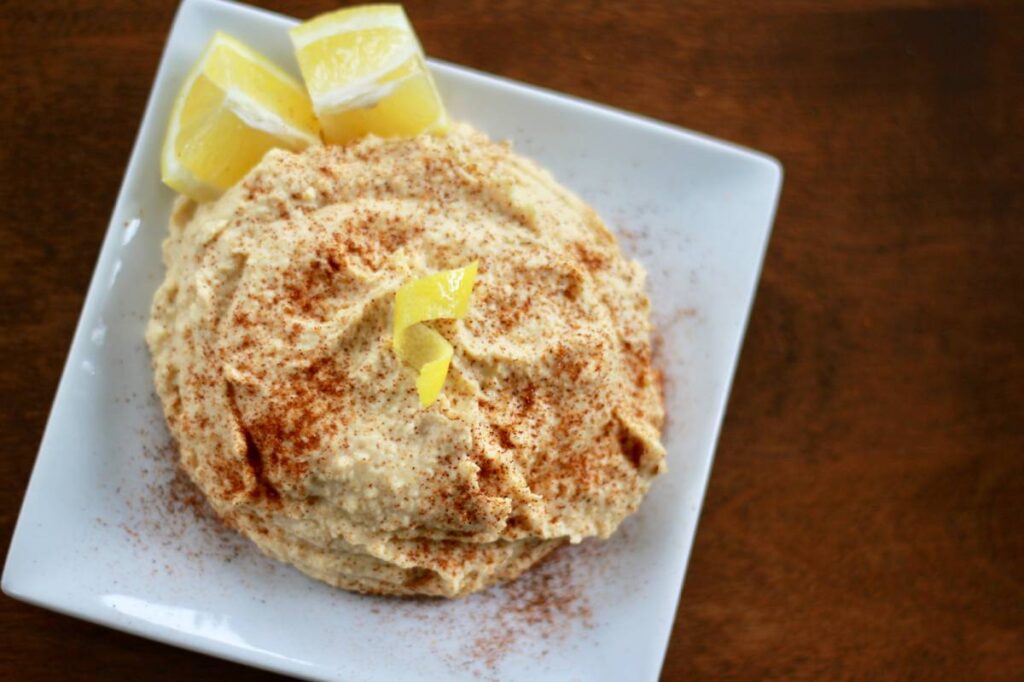
Why to Consider a Reduction in Added Oils
Even though extra virgin olive oil and other oils may contain healthful properties, high amounts of added fats to the diet may impair the arteries’ ability to relax and dilate normally. (1)
Let me explain.
Our blood vessels are lined with endothelial cells. These cells are the barrier between our blood and our body’s tissues. Almost all tissues depend on blood supply and the blood supply depends on endothelial cells. (2) As you can tell, endothelial cells are pretty important.
They are involved in blood clotting, the formation of new blood vessels, and recruitment of immune defense cells. All oils, both animal and plant derived, and especially in high amounts tend to worsen endothelial function. Within hours of consuming a high fat meal, our arteries can stiffen and the ability to dilate is impaired. (3) If our arteries have a reduced ability to dilate, it decreases blood flow and can result in high blood pressure.
Impaired endothelial function is an indication of the early development of cardiovascular disease (atherosclerosis) and seen in patients with high blood pressure, high cholesterol, coronary artery disease, and type 2 diabetes. (3)
Our Personal Approach to Added Oils
Although it certainly can be done, I find it extremely difficult to avoid all added oil, especially when going out to eat. I typically encourage my own clients to choose an approach that works best with their lifestyle – either a complete elimination of added oils or a focus on reducing added oils.
In an approach to reduce added oils, I prefer to focus on reducing oils when and where I can. However, it is not a primarily focus of mine. I prefer to focus on getting as many whole, unprocessed plant foods as I can, and sometimes some added oil makes it a bit easier to get these foods in.
Once place to reduce added oils is to make your own oil free hummus.
The Best Oil Free Hummus – How To
Now, a few notes about the recipe. Before you start, you should decide if a smooth texture is a must for you. If so, it’s best to remove the peel of the chickpeas.
There are two methods that work well to remove the peels:
- Remove by hand, straight out of the can.
- Bring a small pot of water to boil and add 1 teaspoon of baking soda. This will help loosen up the peel.
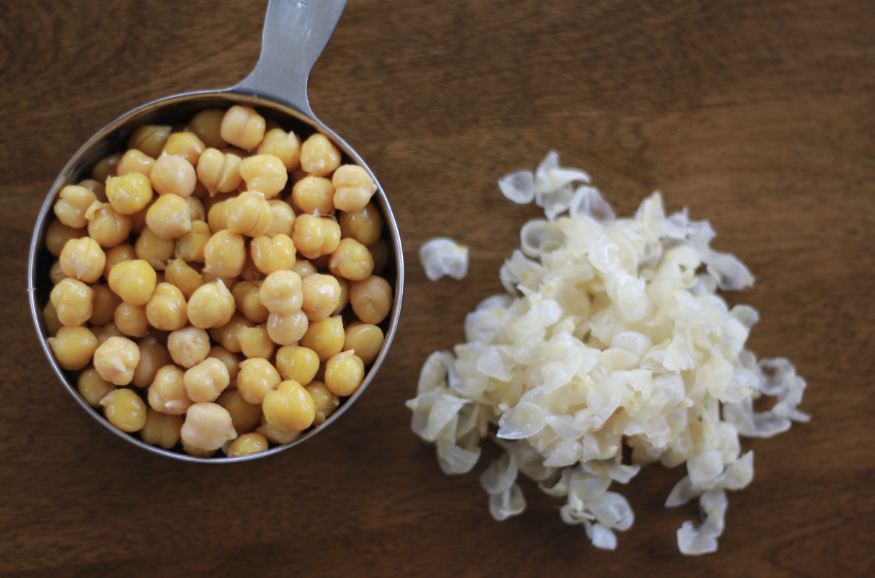
Both of these options are a little time consuming, but worth the smooth texture!
If you don’t feel like you need the wonderfully smooth hummus, you can skip this step.
Since we aren’t using oil, we need something to make it creamy. I achieved this with whipped aquafaba.
Aquafaba is the liquid leftover from cooked or canned chickpeas. The trick to whipping aquafaba is using a hand or stand mixer. Whipping aquafaba takes about 4 minutes to get it foamy with and peaks like meringue.

I promise it’s easier than it seems.
Now, time for the complete recipe to the best oil free hummus. Enjoy!
Oil-Free Garlic Hummus
Makes about 1.5 cups
Ingredients
15 oz can of chickpeas, drained liquid (aquafaba) reserved
1/4 cup of aquafaba
1 tsp baking soda, optional
2 – 3 cloves of garlic
2 tablespoons tahini
Juice of 1 lemon ( 2 – 3 tablespoons )
½ teaspoon salt, or to taste
Optional toppings: paprika, roasted pine nuts, oregano, etc
Recommended kitchen gadgets
Hand-held mixer and food processor/blender
Directions
Bring a small pot of water to boil. While you wait, open your can of chickpeas reserve ¼ cup of the aquafaba liquid and set aside. Then, rinse the chickpeas.
Once boiling, add 1 teaspoon of baking soda and the chickpeas to the pot. The baking soda will help loosen the peels. Since the chickpeas are already cooked, only leave them in there for 2-3 minutes (until you start seeing some of the peels float). Remove from the heat and immediately strain and rinse with cold water.
Now, you’ll want to go through the chickpeas and discard as many of the peels as possible for a smooth texture. Add the chickpeas, garlic, tahini, lemon juice, and salt to your food processor.
Next, add your aquafaba to a bowl and whip it with a hand-held blender. This should take about 4 minutes, more or less. Once the aquafaba is creating peaks, add it to your food processor. Blend everything until smooth, about 1 – 2 minutes.
Store hummus in a well-sealed container in the fridge up to 5 days (no preservatives here!). Enjoy!
References
- Vogel RA, Corretti MC, Plotnick GD. The postprandial effect of components of the Mediterranean diet on endothelial function. J A Coll Cardiol. 2000;36(5):1455-60.
- Alberts, Bruce, et al. “Blood Vessels and Endothelial Cells.” Molecular Biology of the Cell. 4th Edition., U.S. National Library of Medicine, 2002, www.ncbi.nlm.nih.gov/books/NBK26848/.
- Oliveira, Rosane. “Is Olive Oil Bad for Your Heart?” Forks Over Knives, 19 Mar. 2019, www.forksoverknives.com/why-olive-oil-is-not-healthy-for-your-heart/#gs.5rvsr6.
The Best Oil Free Hummus
Leave a Reply Cancel reply
Featured Articles
Wholesome LLC is not a medical practice, and its employees cannot offer medical advice. This website provides educational information but it is not a substitute for medical advice from a licensed medical professional who is familiar with your particular facts and circumstances. The information contained on this website is not intended to diagnose, treat, or cure any disease and shall not be construed as medical advice. The information and education on this website is provided for you to use at your own discretion.
You can further review our disclaimer here.
Wholesome
About Alison
Courses & Programs
The Wholesome Journey
Free Resources
FAQs
Press & Media
Recipes
Blog
Contact Us
Shop
© 2026 Wholesome, LLC All rights reserved.
Privacy Policy
Terms of Use
Disclaimer
Mobile Terms of Service
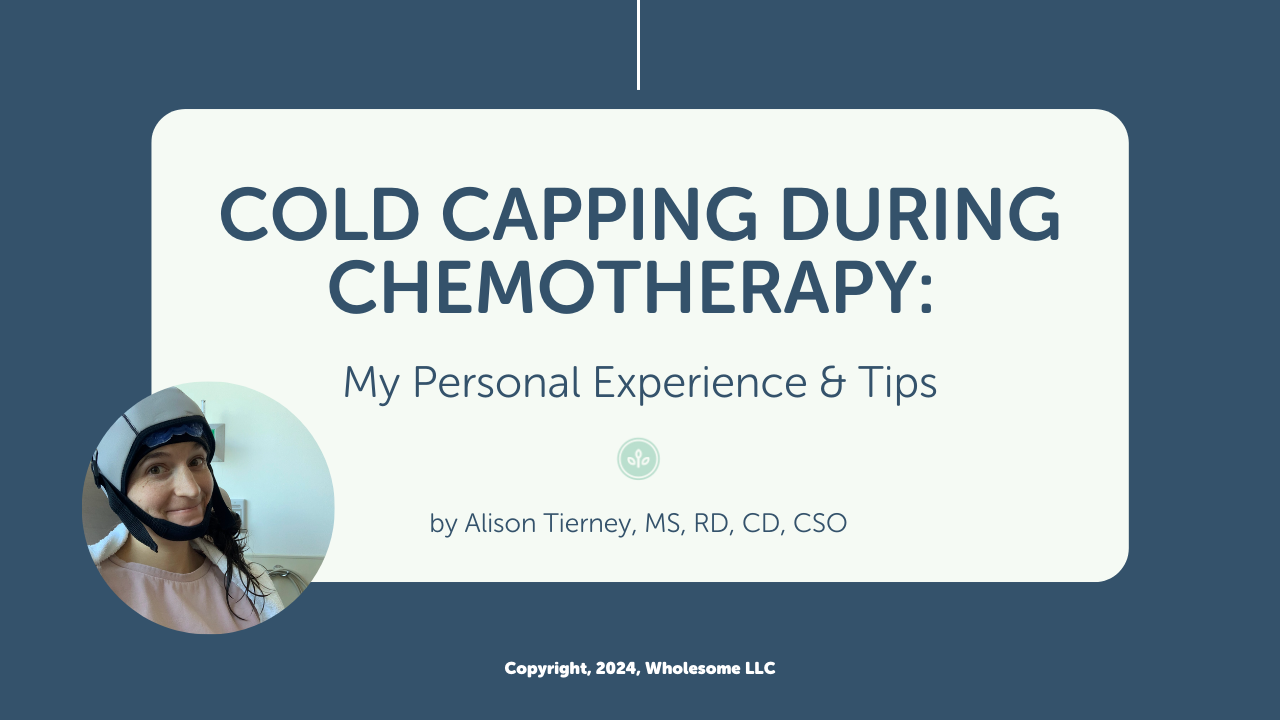
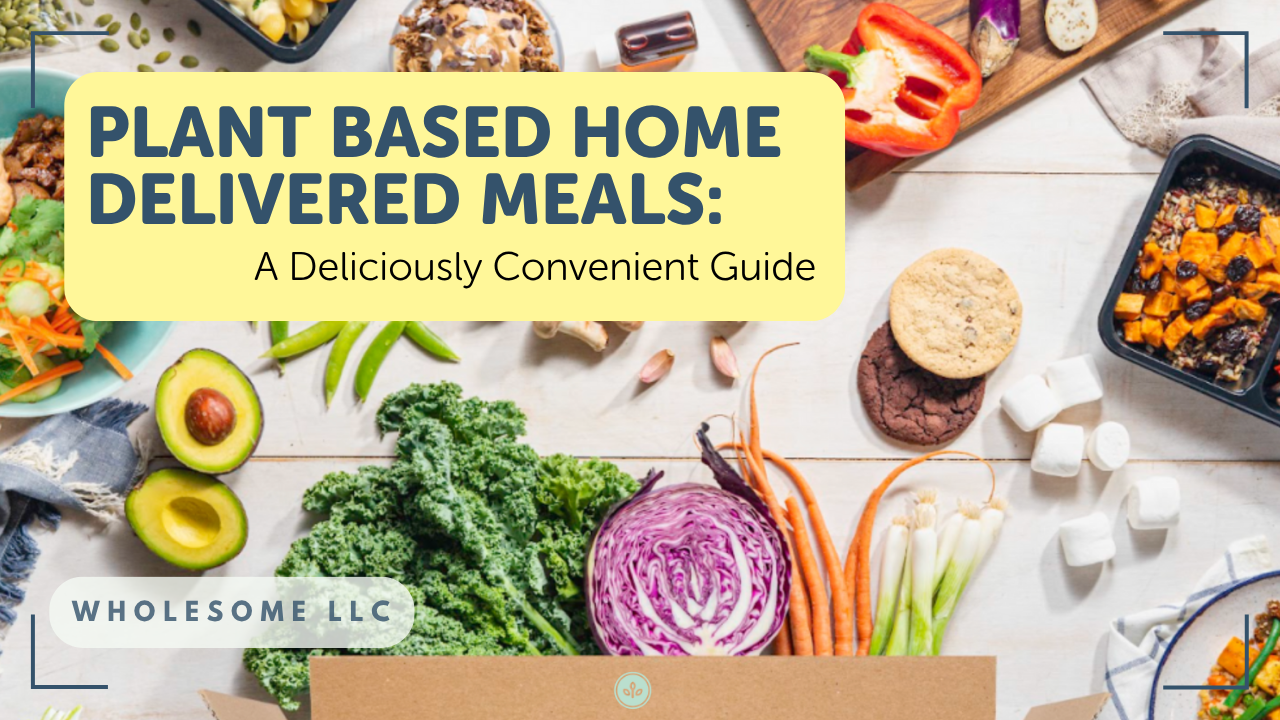
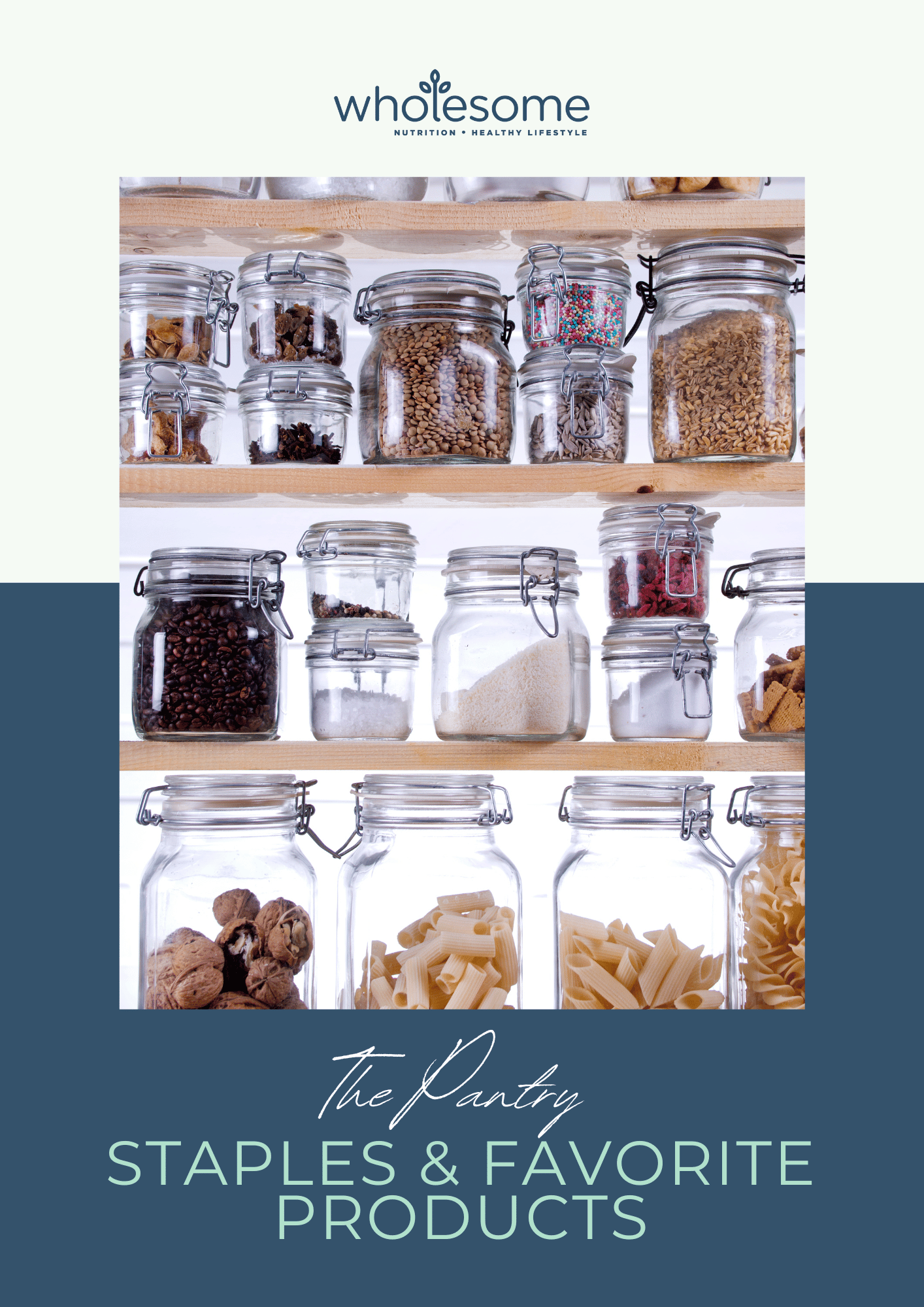
Be the first to comment